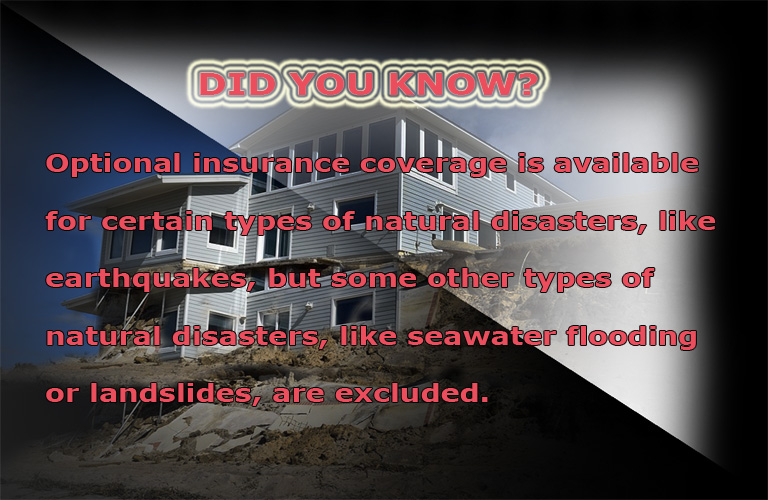A monthly payment plan is offered by most insurance companies. The catch is: most of them also charge service fees for installment payments, so check with insurance agent or broker and shop around, you might find a company that does not charge service fees.
Having a current inventory of your contents (e.g. photos or videos) will help in the event of a claim such as fire or theft. This should be kept in a safe place away from your dwelling such as a safety deposit box. Make sure your inventory is updated from time to time.
Coverage for rental dwellings should include rental income, liability and contents that you own and supply in the dwelling.
Your location strongly impacts your car insurance rates, so if you move make sure your insurance company is informed. If you have not informed your insurance company about your move, your claim can be refused.
Condominium owners should review Schedule C of the Corporation's Declaration with their policy to ensure proper coverage is being carried. Keep in mind that most condominium corporation insurance usually covers the overall building structure like roof, windows, exterior finishes, and common areas like elevators and hallways. It does not cover the contents of your condo, its upgrades and third party liability should you cause damage to other condo units (e.g. via flooding).
A mature discount may be available. The qualifying age differs with each insurance company, so check with your insurance agent or broker.
Your policy may limit or exclude claims arising from any type of business operated from the dwelling. Coverage is usually available for an additional premium.
Coverage for seasonal dwellings should include theft coverage for contents, vandalism and liability. Also some insurance companies may provide enhanced coverage if the location qualifies.
Coverage for watercraft should include liability and coverage for equipment and accessories not permanently attached to the watercraft. Coverage for zebra mussels (an aquatic invasive species) is excluded by some insurance companies.
Any auxiliary heating system in the dwelling (e.g. woodburning stove, portable heaters) must be noted on your policy. Your coverage could be affected if your insurance company is not notified.
Your policy may contain special limits pertaining to losses such as jewelry, furs, silverware, collections and watercraft. Increased limits may be purchased for an additional premium.
Most insurance companies have enhanced coverage (e.g. risk coverage on the building and/or contents) available for an additional premium.
Due to inflation, a review of the building coverage is strongly recommended to ensure that you are adequately protected at today's values for full rebuilding cost. If you have recently completed any renovations or additions, keep your insurance agent or broker well aware of the status of any improvements.
Car stored in a garage is not covered by your home insurance policy. Your car should be covered by the comprehensive coverage of your auto insurance policy.
Shopping around is a great way to make sure you get the best price, service and coverage. Consider shopping around if you weren't satisfied with the service you received when making your last insurance claim with your current insurer or if you want additional insurance or less restrictive coverage than you can get with your current insurer.
The easiest time to shop for and change insurance policies is when your current policy term is coming to an end. Always read your insurance policy carefully, discuss and make changes if you wish before signing. Once your insurance policy is signed, it will be much harder to make changes.






